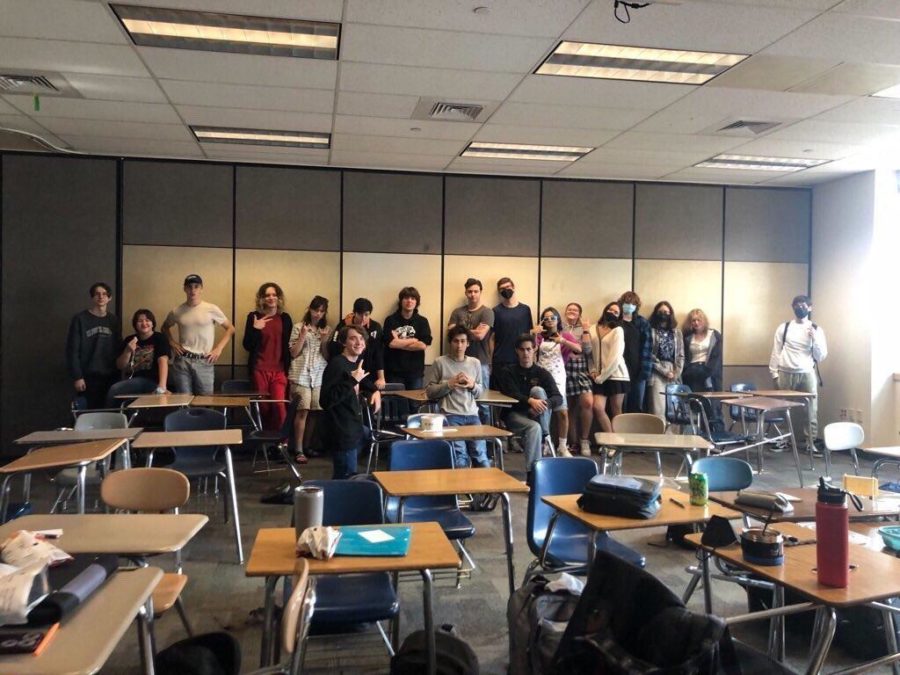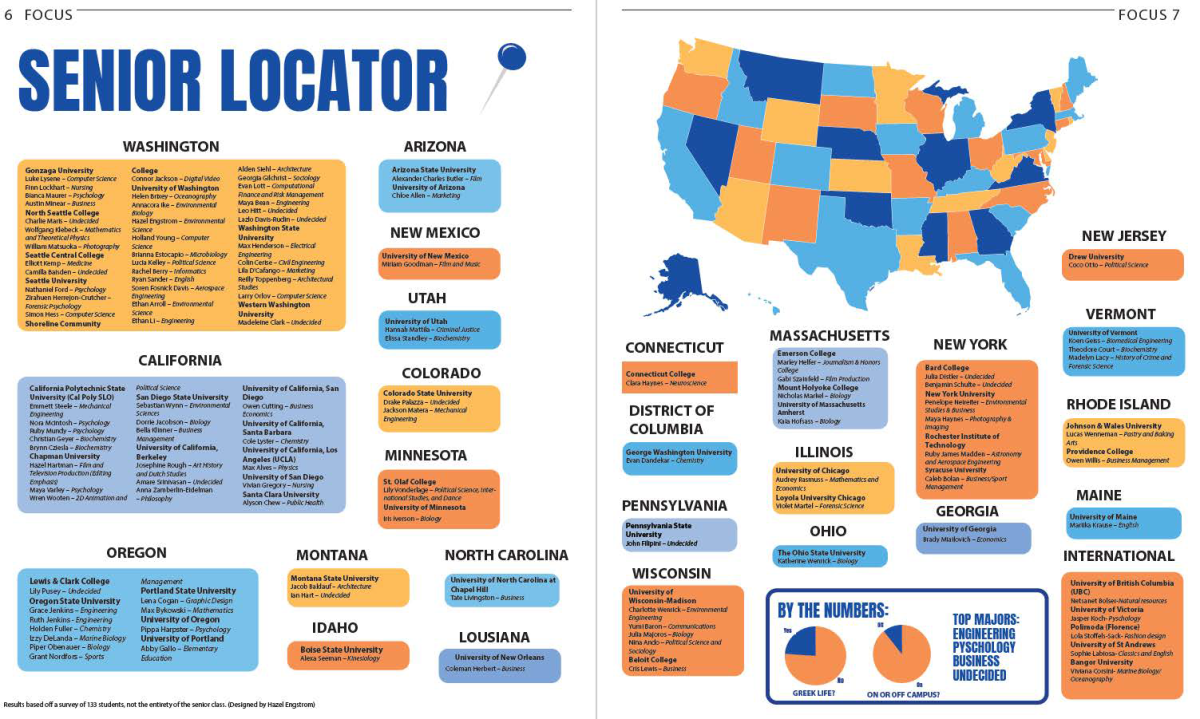Junior starts club to discuss traditional masculinity and femininity
Positive Masculinity Club meets Wednesdays at lunch in Brook Brayman’s classroom, SW106.
March 17, 2023
Often, students aim to project awareness around issues regarding gender, and try to create safe spaces. Junior Karim Rifai sought to provide a space where students have the opportunity to discuss issues regarding traditional masculinity and femininity. Towards the beginning of the school year he succeeded, and the Positive Masculinity Club became official.
The club meets every Wednesday during lunch and has a loose structure where students can engage in thought-provoking conversations with friends that still feel fun and enlightening.
Rifai selected ELA teacher Brook Brayman as the club’s adviser.
“He is a very vocal teacher, which is what originally drew me to him,” Rifai said. “He is right on the line of [being] controversial, but manages to balance what he says with what he means.”
Rifai has faith in Brayman’s abilities as an adviser.
“He is actually a great adviser,” Rifai said. “You know how most advisers sit back and let the clubs go through their activities? Well, Brayman finds a way to be involved with all of our discussions without completely stealing our attention. He sometimes even gives us discussion questions.”
The club is focusing on several long term goals:
“We are trying to create some type of service project,” Rifai said. “Mr. Brayman actually was the one who suggested creating a service project, in fact he says that he is encouraging all of his clubs to commit to some form of community service.”
Positive Masculinity Club typically receives visitors, the amount varying weekly.
“There are consistently the same five to six students in attendance, 50% female and 50% male,” Rifai said. “The most students we have ever had was around 25.”
Rifai started the club initially for his own self-betterment but started to learn about the culture around masculinity among the student body.
“The club is here to encourage traditionally positive masculine traits like bravery or strength,” Rifai said. “The most important thing to me is to run a space for everyone, not just people using gendered pronouns.”
He reached beyond to explain the core values and conversations held by the club.
“Femininity and masculinity are rooted in what we think men and women should be, but what we should be has evolved so much,” Rifai said.
Rifai used himself as an example.
“I try to maintain both traditionally masculine and feminine traits as I move through my [days],” he said.
Rifai felt it important to disclose that the club has conversed about last year’s open discussion on sexual assault amongst students on campus. He felt that this topic is of utmost importance within the concept of toxic masculinity in contrast with positive masculinity.
“I think at Ballard people tend to use masculinity to justify bad behavior, and that’s something we often discuss during club,” Rifai said.
He believes that in order to achieve gender equality, no one should get flack for being proud of their masculinity.
Teagan Takahashi, a junior who regularly attends club meetings, is in full support of the structure and discussions the club provides.
“More than a support system, the club creates space for much needed dialogue.” Takahashi finds comfort in the kindness of the regular and new attendees.
“We bring up feminist issues and how men perpetuate them.”
She began attending meetings a month after the club became official and instantly took advantage of the opportunity for engaging conversation.
“I try to be considerate of how I contribute, because I do love to talk and sometimes become a little too enthralled in the topic at hand.” Takahashi said. Her favorite aspect of Positive Masculinity club is her ability to hear everyone’s thoughtful input.
“I like to push my friends to see how they feel about whatever it is we may be talking about.” Ultimately Takahashi feels inspired by how the club is conducted and how they are able to reflect on the negative, but mostly positive traits seen in both men and women.
“Watching Kareem talk about who he mirrors in his daily life is so fascinating and helps me better understand his actions and emotions.”

























